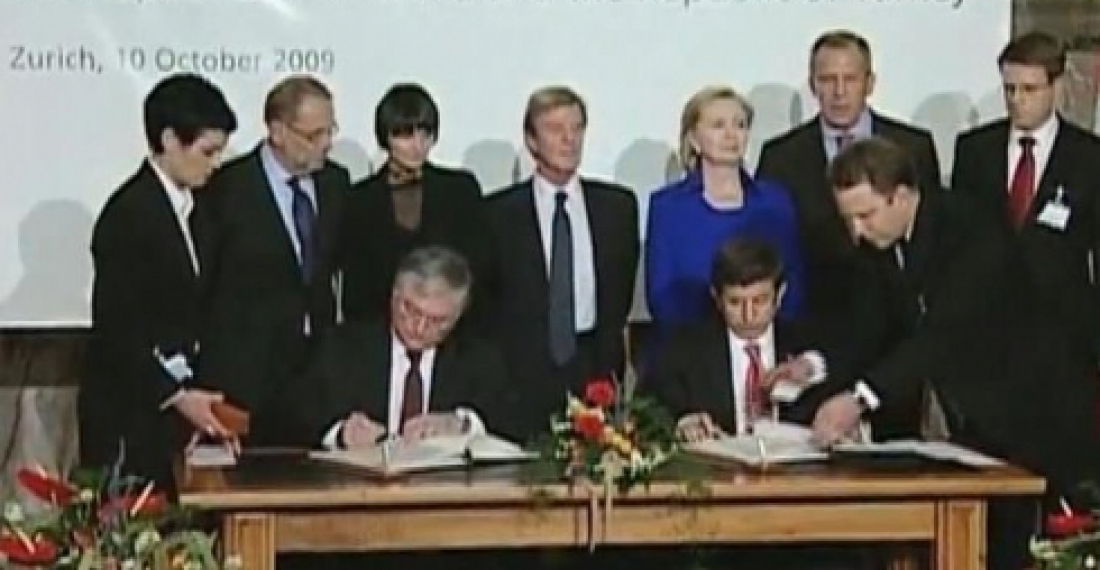Президент Армении Серж Саргсян, официально вышел из процесса рассмотрения парламентом страны протоколов, которые его страна подписала с Турцией в 2009 году, и которые должны были открыть новую главу в непростых отношениях между двумя странами. Протоколы были подписаны министрами иностранных дел Армении и Турции в Цюрихе, 10 октября 2009 года, после длительных переговоров, которые в основном проходили в секрете. После подписания стало ясно, что обе стороны столкнулись с сильным давлением со стороны различных групп заинтересованных в не допущений ратификаций тех договоренностей, которые, среди прочего, предусматривали установление дипломатических отношений и открытие границ. Азербайджан, который настаивал на том, что нормализации отношений Турции с Арменией не должно быть, пока не будет достигнут прогресс в карабахском процессе по разрешению конфликта, который резко отреагировал на подписание, угрожая понизить уровень своих отношений с Турцией. Турция впоследствии отложила ратификацию протоколов. В Армении, и особенно среди армянских общин и диаспор протоколы были также негативно оценены.
В своем письме к председателю парламента Армении президент Саргсян сказал, что в течение шести лет с момента подписания протоколов, Армения всегда имела последовательную позицию по реализации протоколов.
"Тем не менее, мы должны признать отсутствие политической воли у турецких властей, искажение текста и духа протоколов и последовательное отрицание. Параллельно с этим, накануне 100-летия Геноцида армян, политика отрицания и "перепись" истории получает новое развитие" сказал президент. Армянский лидер заявил, что сожалеет о том, что турецкие власти не услышали призывы Армении.
Политический редактор Commonspace.eu пишет, что "отзыв протокола с рассмотрения парламентом Армении был чисто символическим. Протоколы уже давно считались погибшими, по крайней мере в их нынешнем формате. В период, когда Армения готовится к 100 летию со дня ужасов совершенных против армян в Анатолии в 1915 году, которые характеризуются как Геноцид армян, вывод протоколов является еще одним знаком того, что армянская сторона недовольна ходом событий. Однако, причины, почему Армения хотела подписать протоколы остаются теми же. Страна сталкнулась с серьезными экономическими проблемами и считается, что открытие границы с Турцией будет важной частью решения этих проблем. Ничего особенного в этом году не произойдет, но вполне вероятно, что обе стороны будут поддерживать открытыми каналы связи для того, чтобы вновь вернуться к данным вопросам в более удобное политическое время".
источник: commonspace.eu по материалам агентств
фото: Подписание армяно-турецких протоколов в Цюрихе, 10 октября 2009 года (фото из архива).






